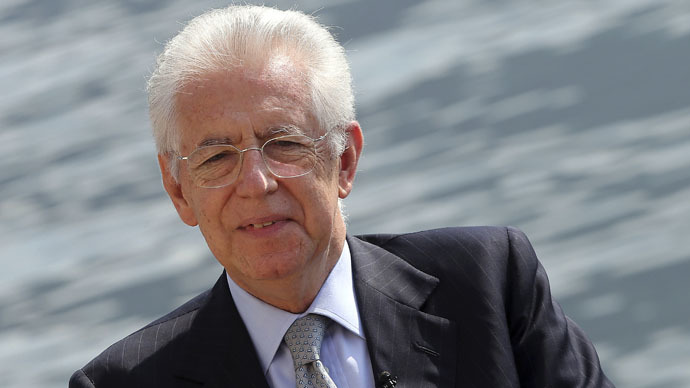Re: Ukraine
Eastern Ukraine has suffered the worst violence in more than a week as fighting between pro-Russian rebels and government troops in the region killed at least 12 people and wounded 32, officials said Monday.
Col. Andriy Lysenko told journalists in a briefing in Kiev on Monday that at least nine troops had been killed in a day and 27 had been wounded.
Meanwhile, the city council of Donetsk said in a statement published online that at least three civilians were killed and five wounded in overnight shelling of a residential area in the northern part of the city, where fighting has centered on the government-held airport. Throughout the day in Donetsk, regular explosions could be heard coming from the north of the city.
Violence has continued despite a cease-fire declared on Sept. 5. Ukrainian President Petro Poroshenko has been at pains to insist to a skeptical audience at home that his peace plan is working and said last week that he believed "the most dangerous part of the war" is over.
Since fighting began in April, the conflict has claimed at least 3,500 lives. On Sept. 20, representatives of Russia, Ukraine, and the rebels signed another agreement that would require both sides to remove all heavy artillery from the frontline, creating a buffer zone that would allow the cease-fire to be better enforced.
German Chancellor Angela Merkel in Berlin said that the situation in east Ukraine was "anything but satisfactory."
"The elementary question of the cease-fire is not yet cleared up, still less the future status and cooperation between the Luhansk and Donetsk regions and the Ukrainian central government," Merkel said. "There is no protection of the border along the entire Luhansk and Donetsk region— no control, no buffer zones, and all of that is the minimum condition for us to be able to consider revoking sanctions. Unfortunately, we are a very long way away from that."
The EU imposed several rounds of sanctions on Russian companies and individuals for their role in the east Ukraine conflict. Kiev and the West have repeatedly asserted that Moscow has fueled the separatist insurgency by providing it with arms and personnel, something Russia denies.
On Sunday, in the second-largest Ukrainian city, Kharkiv, nationalists tore down an enormous statue of Vladimir Lenin to cheers from the crowd. Across Ukraine, people have torn down statues to the former Communist leader in a symbolic display of anti-Russian sentiment.
The authorities in Kharkiv supported the move. Arsen Avakov, Ukraine's Minister of Internal Affairs and a Kharkiv native, wrote on his Facebook page: "Lenin? Let him fall... As long as nobody gets hurt."
———
Geir Moulson in Berlin and Darko Vojinovic in Donetsk, Ukraine contributed to this report.
Eastern Ukraine has suffered the worst violence in more than a week as fighting between pro-Russian rebels and government troops in the region killed at least 12 people and wounded 32, officials said Monday.
Col. Andriy Lysenko told journalists in a briefing in Kiev on Monday that at least nine troops had been killed in a day and 27 had been wounded.
Meanwhile, the city council of Donetsk said in a statement published online that at least three civilians were killed and five wounded in overnight shelling of a residential area in the northern part of the city, where fighting has centered on the government-held airport. Throughout the day in Donetsk, regular explosions could be heard coming from the north of the city.
Violence has continued despite a cease-fire declared on Sept. 5. Ukrainian President Petro Poroshenko has been at pains to insist to a skeptical audience at home that his peace plan is working and said last week that he believed "the most dangerous part of the war" is over.
Since fighting began in April, the conflict has claimed at least 3,500 lives. On Sept. 20, representatives of Russia, Ukraine, and the rebels signed another agreement that would require both sides to remove all heavy artillery from the frontline, creating a buffer zone that would allow the cease-fire to be better enforced.
German Chancellor Angela Merkel in Berlin said that the situation in east Ukraine was "anything but satisfactory."
"The elementary question of the cease-fire is not yet cleared up, still less the future status and cooperation between the Luhansk and Donetsk regions and the Ukrainian central government," Merkel said. "There is no protection of the border along the entire Luhansk and Donetsk region— no control, no buffer zones, and all of that is the minimum condition for us to be able to consider revoking sanctions. Unfortunately, we are a very long way away from that."
The EU imposed several rounds of sanctions on Russian companies and individuals for their role in the east Ukraine conflict. Kiev and the West have repeatedly asserted that Moscow has fueled the separatist insurgency by providing it with arms and personnel, something Russia denies.
On Sunday, in the second-largest Ukrainian city, Kharkiv, nationalists tore down an enormous statue of Vladimir Lenin to cheers from the crowd. Across Ukraine, people have torn down statues to the former Communist leader in a symbolic display of anti-Russian sentiment.
The authorities in Kharkiv supported the move. Arsen Avakov, Ukraine's Minister of Internal Affairs and a Kharkiv native, wrote on his Facebook page: "Lenin? Let him fall... As long as nobody gets hurt."
———
Geir Moulson in Berlin and Darko Vojinovic in Donetsk, Ukraine contributed to this report.





Comment